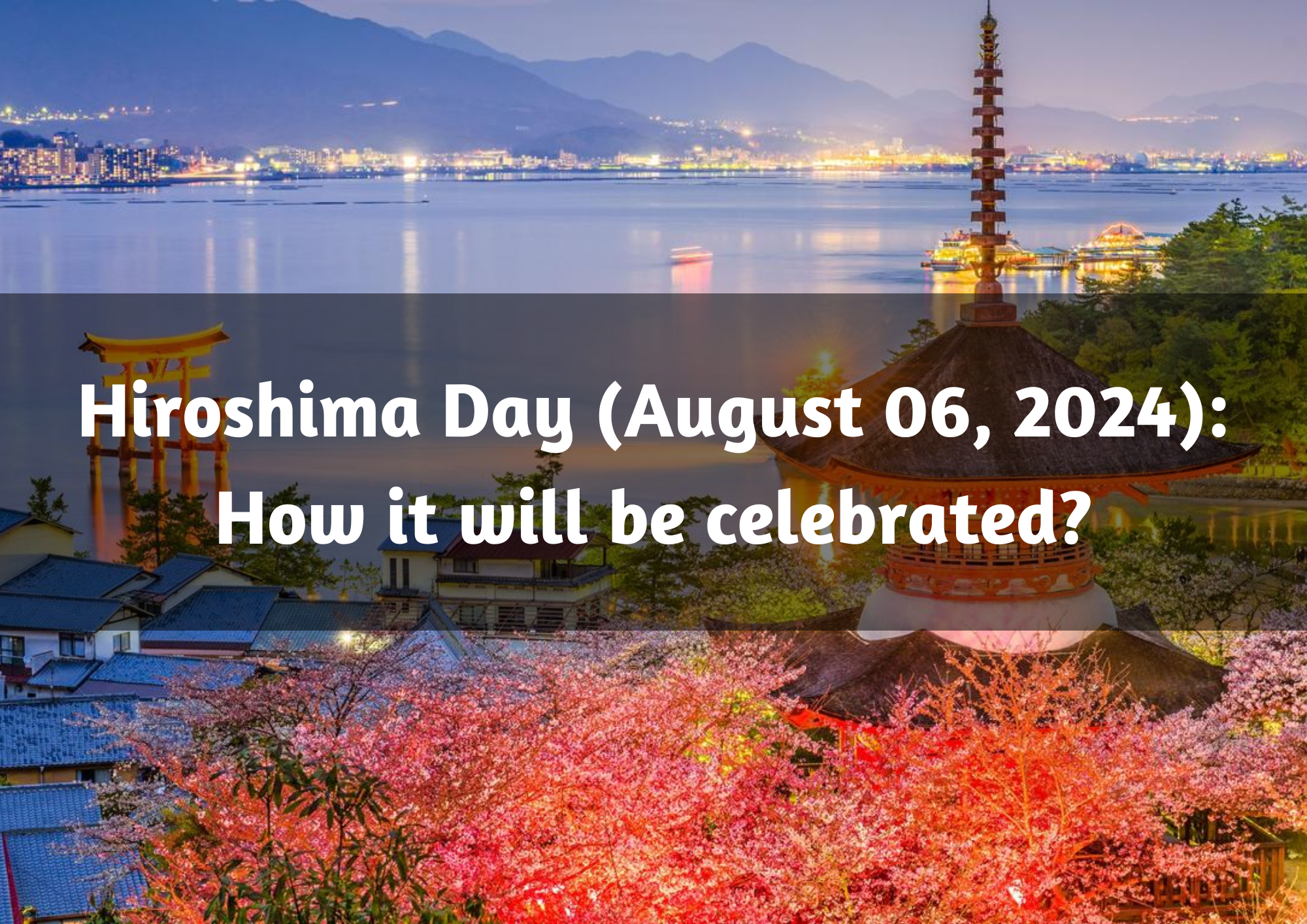
Hiroshima Day (August 06, 2024): How it will be celebrated?
The anniversary of the atomic bomb’s devastation of Hiroshima in 1945 is marked on Hiroshima Day, August 6th. This day is dedicated to remembering the victims of the bombing and promoting peace and nuclear disarmament. The event pays tribute to history while highlighting the urgent need to create a planet secure from nuclear danger. Each year, the city of Hiroshima and communities around the globe engage in various activities and ceremonies to commemorate this significant day. This article examines Hiroshima Day commemorations, focusing on local Hiroshima events and the global peace movement.

Source: cazenove+loyd
Ceremonies in Hiroshima
The Peace Memorial Ceremony held at the Hiroshima Peace Memorial Park, it attracts thousands of attendees, including survivors of the bombing (known as hibakusha), their families, government officials, and international delegates. The ceremony typically begins with a moment of silence at 8:15 a.m., the exact time the bomb was dropped.
During the ceremony, the mayor delivers the Peace Declaration, a speech that addresses the experiences of the bombing, calls for the abolition of nuclear weapons, and reaffirms city’s commitment to peace. The Prime Minister of Japan also attends and speaks, highlighting Japan’s stance on nuclear disarmament and global peace.
One particularly moving aspect of the event was the liberation of doves, representing peace and the worldwide aspiration for a planet free from nuclear weapons. Furthermore, participants placed floral tributes at the Cenotaph honoring A-bomb victims, a memorial inscribed with the names of all identified casualties.
Lantern Floating Ceremony
In the evening, the Lantern Floating Ceremony takes place along the Motoyasu River, which runs adjacent to the Peace Memorial Park. Before releasing paper lanterns onto the river, participants write heartfelt messages of peace, love, and remembrance. This serene and visually striking event symbolizes guiding the spirits of the deceased to a peaceful afterlife and serves as a collective wish for global harmony.
Educational and Cultural Events
Hiroshima Day also features various educational and cultural events aimed at raising awareness about the consequences of nuclear warfare and promoting a culture of peace. Schools and universities in Hiroshima organize special lectures, exhibitions, and workshops. The Hiroshima Peace Memorial Museum experiences a surge in visitors seeking to comprehend the history and devastating consequences of the atomic bomb.
Art is a crucial element in the day’s commemorative events. Exhibitions, performances, and film screenings related to peace and the bombing are held throughout the city. These artistic works offer profound and emotional interpretations of the tragedy, revealing the enduring strength of the human spirit.
Global Observances
In cities across the globe, people gather to honor the victims and advocate for peace and nuclear disarmament. These global observances often mirror the activities in Hiroshima, including moments of silence, lantern floating ceremonies, and peace marches.
In New York City, for example, events are held at the United Nations headquarters, where diplomats and peace activists discuss the importance of nuclear disarmament and the role of international cooperation in achieving this goal.
The Role of Education
Education is a cornerstone of Hiroshima Day. Schools around the world use this day to teach students about the history of Hiroshima and Nagasaki, the devastating effects of nuclear weapons, and the importance of peacebuilding. Educational institutions organize activities such as essay competitions, art projects, and guest lectures to engage students in meaningful discussions about these critical issues.
Many educators use multimedia resources, including documentaries and survivor testimonies, to provide students with a deeper understanding of the human impact of nuclear warfare. This approach leaves a lasting impact and inspires future generations to pursue peace.
Advocacy and Activism
Hiroshima Day serves as a rallying point. Advocates for peace and nuclear abolition are escalating their campaigns to educate the public about the catastrophic risks of nuclear weapons and the urgent necessity of eliminating them. Campaigns and petitions are launched to pressure governments to commit to nuclear non-proliferation treaties and to take concrete steps toward disarmament.
Activists often use social media to amplify their message, reaching a global audience and encouraging widespread participation in Hiroshima Day events. Online platforms provide a space for people to share their thoughts, memories, and hopes for a peaceful future, creating a virtual community of individuals united by a common cause.
The Role of Technology
In recent years, technology has played an increasingly important role in the observance of Hiroshima Day. Virtual reality (VR) experiences and digital archives allow people to explore Hiroshima’s history and the impact of the bombing from anywhere in the world. These tools provide immersive and interactive ways to learn about the past, ensuring that the memory of Hiroshima is preserved and accessible to future generations.
Live streaming of events from Hiroshima enables global participation, allowing people who cannot be physically present to join in the commemorations. This use of technology helps to bridge geographical distances and fosters a sense of global solidarity in the pursuit of peace.
This Day is a poignant reminder of the catastrophic consequences of nuclear warfare and the enduring human spirit in the face of unimaginable tragedy. The day is marked by solemn ceremonies, educational initiatives, and artistic expressions that honor the memory of the victims and advocate for a world free from the threat of nuclear weapons.
As Hiroshima Day continues to be observed globally, it serves as a powerful call to action for individuals and nations alike to commit to peace and work towards a future where such devastation is never repeated. Through remembrance, education, and activism, Hiroshima Day keeps the hope for a peaceful world alive and inspires collective efforts towards nuclear disarmament and global harmony.




